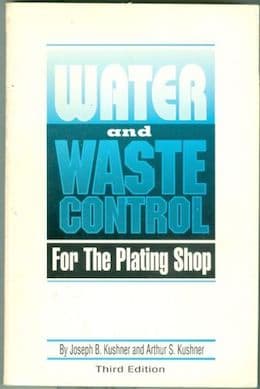
Curated with aloha by
Ted Mooney, P.E. RET

The authoritative public forum
for Metal Finishing 1989-2025

-----
Barrel plating process standards for Silver plating
2003
Q. Dear Sir,
I am Mr. Mohan.G, Working as a Asst. Mgr- Vendor Quality. In charge for source development & process upgrading at supplier premises.
We are one of the connector manufacturers and most of the our connectors are silver plated with local established vendors.
I would like to know, what are all the process parameters we have to concentrate for optimum barrel plating?
If water pH less than 5, what are all the failures can take place in plating?
If water pH more than 9, what are all the problems can occur in finished component?
Regards,
Mohan.G.- Bangalore , Karnataka/ India.
by Kushner & Kushner

UTL on eBay
UTL on AbeBooks
on Amazon
(affil links)
A. Welcome to finishing.com and good luck on your mission Mr. Mohan. I'd start by getting a couple of the "must-have" plating books, which will cover not just silver plating but the preparatory cycles as well so you understand the general relationships. But get the technical data sheets from the suppliers of the silver plating chemistry used at your vendor's premises. Your starting point should be deciding that anything outside of the accepted ranges on the supplier's technical data sheet is flat-out unsatisfactory. Once you've gotten within the acceptable range, you can further optimize if you wish.
Trying to approach it from the other direction, i.e., asking what can go wrong if you ignore the proper ranges, will unfortunately prove to be a fool's errand. Firstly, it dismisses decades of experiments and empirically acquired knowledge and condemns you to repeat them all; secondly, it's no different than asking "What are the problems and complaints I'll get if I use rotten eggs in my omelets" or "List all the possible infections if I don't sterilize surgical instruments between patients" :-)
Sorry, but there's just no doing it that way.
It is never a bad idea to install a deionizing system although it may not be strictly necessary for success, depending on your incoming water quality. Compare its quality to the textbook requirements; don't try to list each possible thing that may go wrong if the water is bad. Please see Kushner's
"Water and Waste Control for the Plating Shop" ⇦[this on
eBay,
Amazon,
AbeBooks affil links].
I think you'll find it very enlightening about water quality, and you'll see why efforts towards getting cleaner water are never wasted.
Good luck!

Ted Mooney, P.E.
Striving to live Aloha
finishing.com - Pine Beach, New Jersey
Q, A, or Comment on THIS thread -or- Start a NEW Thread